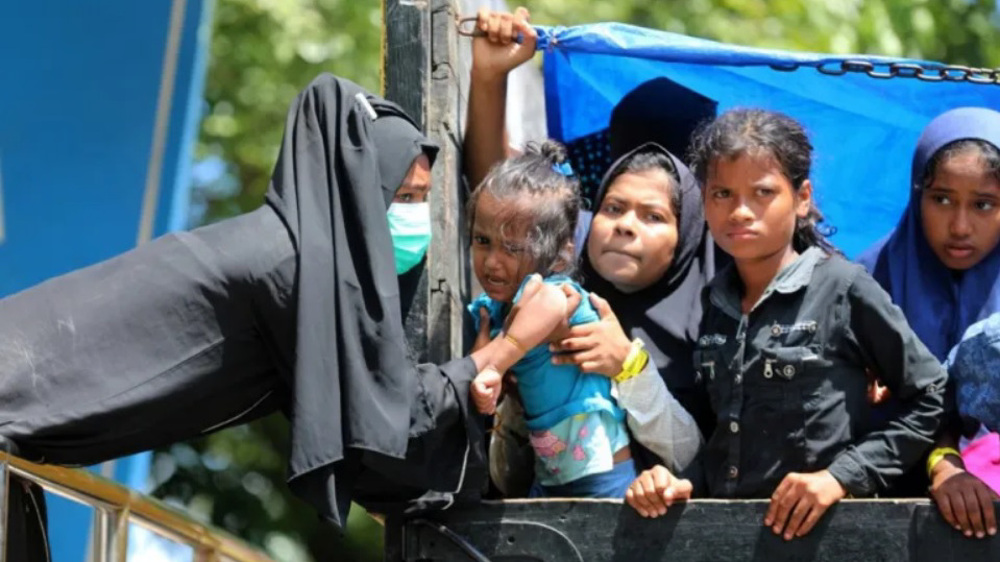UN chief hears ‘unimaginable’ accounts from Rohingya refugees in Bangladesh
UN Secretary-General Antonio Guterres says he heard “unimaginable” accounts of atrocities as he paid a visit to the Bangladeshi camps sheltering Rohingya Muslim refugees who fled a state-sponsored ethnic cleansing campaign at home in Myanmar.
Guterres described the Rohingya situation as “a humanitarian and human rights nightmare” after visiting the refugee camps in southern Bangladeshi port city of Cox’s Bazar on Monday.
“In Cox’s Bazar, Bangladesh, I’ve just heard unimaginable accounts of killing and rape from Rohingya refugees who recently fled Myanmar. They want justice and a safe return home,” Guterres said on Twitter.
The UN chief also said “the Rohingya are one of the most discriminated against and vulnerable communities on Earth.”
The Rohingya Muslims based in Myanmar’s Rakhine State have been subjected to a campaign of killings, rape and arson attacks by the military backed by the country’s majority Buddhist extremists in what the UN has described as “a textbook example of ethnic cleansing.”
The brutal campaign has forced some 700,000 Rohingya Muslims to flee their homeland since August 2017 and seek refuge in Bangladesh.

Many of the displaced Rohingya are either living in squalid camps or just across the border in a plot of land known as no man’s land.
Just before the UN chief’s visit, around 100 Rohingya staged a protest against a preliminary UN deal with Myanmar to assess conditions on the ground for their possible repatriation.
The United Nations has said, however, that conditions in Rakhine are not conducive to the refugees’ safe, voluntary and dignified return.
The Rohingya, who have lived in Myanmar for generations, are denied citizenship and are branded illegal immigrants from Bangladesh, which likewise denies them citizenship.

Human rights group Amnesty International released a comprehensive 190-page document last week, saying it has “a mountain of evidence” that the state-sponsored violence against the Muslim population “was part of a highly orchestrated, systematic attack.”
It called for the United Nations Security Council to refer the military officials, including top commanders, to the International Criminal Court (ICC) for crimes against humanity and impose a “comprehensive arms embargo” on the country and financial sanctions on its senior officials.
Myanmar has so far rejected calls for an ICC investigation, saying it is not a signatory to the treaty that established The Hague-based court.
Amnesty also said it requested explanation from Myanmar’s leader Aung San Suu Kyi but did not receive a response.
Trump says Iron Dome is US technology, not Israel’s
Israeli airstrikes kill two in Lebanon despite ceasefire
Iran riots: Why Trump’s ‘rescue’ rhetoric backfired, uniting Iranians against external meddling
VIDEO | India faces choice in US-sponsored 'Gaza Peace Board'
VIDEO | Trump’s Greenland push sparks EU outrage and transatlantic strain
Israeli military chief warns Netanyahu, Katz of manpower crisis undermining military readiness
Iran Judiciary chief: Enemy turned to rumors after defeat in riots
Iran dismantles terrorist cell: Ringleader killed, 11 members arrested












 This makes it easy to access the Press TV website
This makes it easy to access the Press TV website